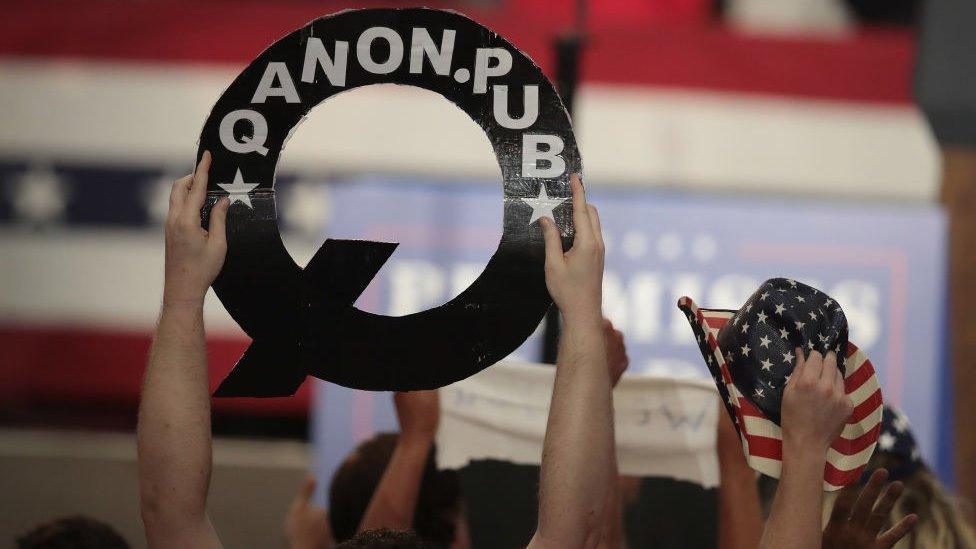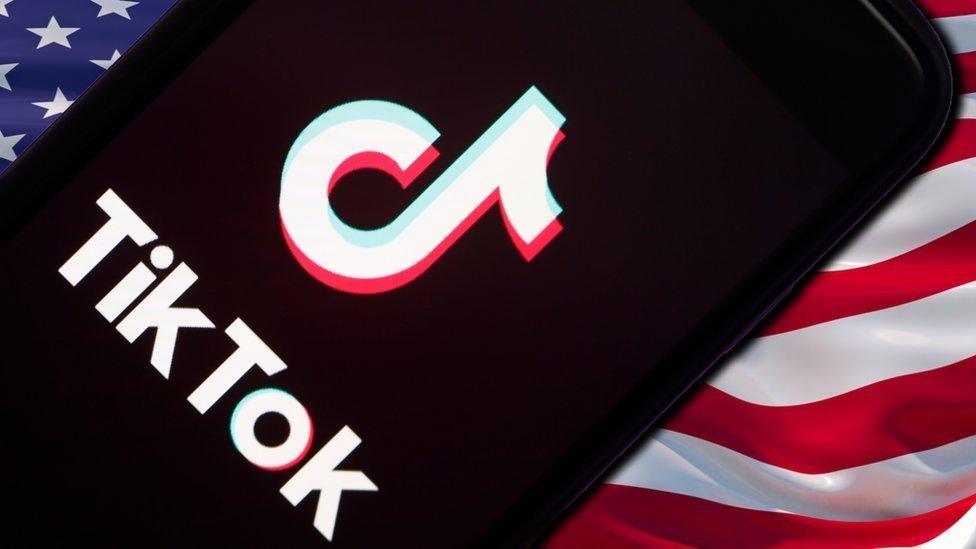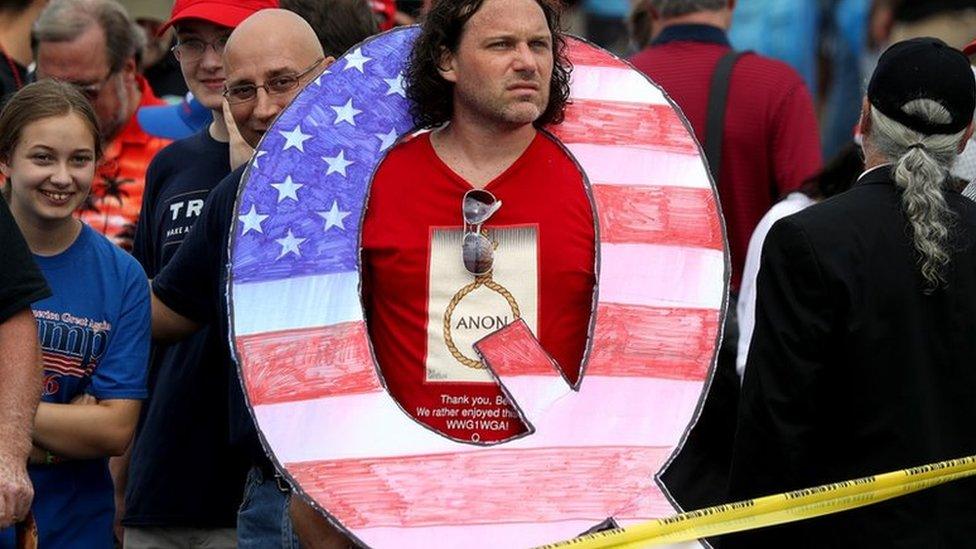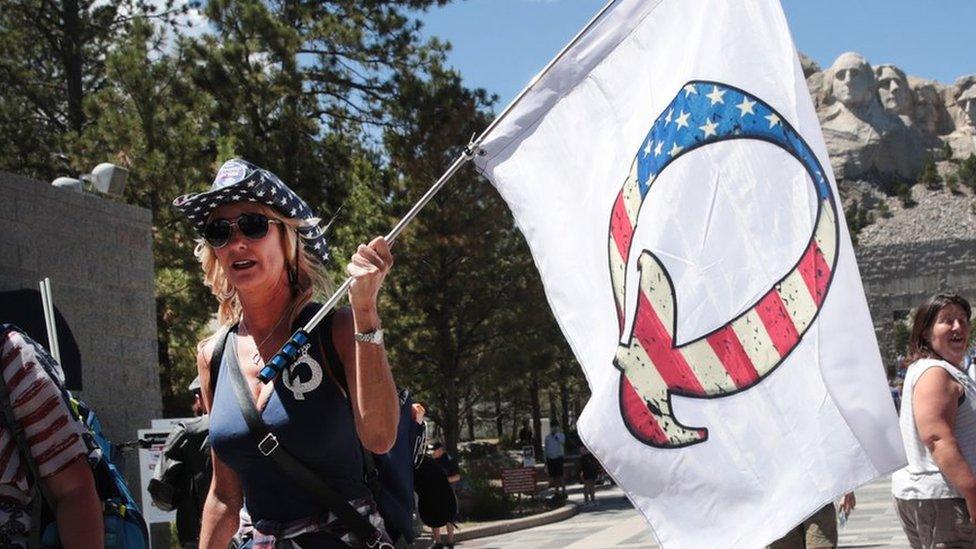QAnon: TikTok blocks QAnon conspiracy theory hashtags
- Published

QAnon conspiracy theories spread on social media and offline
TikTok has blocked a number of hashtags related to the QAnon conspiracy theory from appearing in search results, amid concern about misinformation, the BBC has learned.
It comes days after Twitter banned thousands of QAnon-related accounts.
QAnon is a wide-ranging, unfounded conspiracy theory whose followers support US President Donald Trump.
They believe the president is battling a clandestine "deep state" network of political, business and media elites.
TikTok said it moved to restrict "QAnonTruth" searches after a question from the BBC's anti-disinformation unit, which noticed a spike in conspiracy videos using the tag. The company expressed concern that such misinformation could harm users and the general public.
"QAnon" and related hashtags, such as "Out of Shadows", ''Fall Cabal" and "QAnonTruth", will no longer return search results on TikTok - although videos using the same tags will remain on the platform.
Videos using the "QAnon" hashtag, in particular, have millions of cumulative views and can still be found if a user's algorithm directs them to the associated content.
Many videos promote unfounded conspiracy theories. Recently, some of them endorsed baseless claims linking furniture firm Wayfair to child trafficking.

TikTok has become a popular platform with QAnon conspiracy theorists
TikTok's intervention comes after Twitter announced measures earlier this week also aimed at cracking down on the QAnon conspiracy theorists, including banning thousands of accounts.
It said the suspensions will be applied to accounts that are "engaged in violations of our multi-account policy, co-ordinating abuse around individual victims, or are attempting to evade a previous suspension".
Twitter also said it would stop recommending content linked to QAnon and block URLs associated with it from being shared on the platform, in an attempt to prevent "offline harm".
Celebrities, including model Chrissy Teigen, external, have been victims of co-ordinated abuse from QAnon conspiracy theorists in recent weeks.
Sources close to Facebook say the social media site is looking to take similar action over supporters of the conspiracy theory. QAnon groups on the site have hundreds of thousands of members accumulatively.
What is QAnon?
QAnon began in October 2017 on the anonymous message board 4chan. A user claimed to have top security clearance within the US government and signed off their posts as "Q" - hence the name QAnon. Q communicates in cryptic posts and claims to be directly involved in a secret investigation into a global network of child abusers.
The total list of QAnon claims is enormous - and often contradictory.
Most recently, QAnon conspiracy theorists have spread a number of unfounded conspiracy theories about coronavirus, ranging from claims about the pandemic being a "hoax" to outlandish suggestions about face masks and vaccines.
The central theory about a malicious "deep-state" network of elites, followed on from the "pizzagate" saga in 2016 - a fake theory about Democratic Party politicians running a paedophile ring out of a Washington pizza restaurant.
Many QAnon influencers have big audiences on social media. They urge followers to "do their own research" - in other words, watch YouTube videos and talk to other supporters - to solve Q's puzzles.
You might also be interested in watching:
How to talk about conspiracy theories
- Published6 January 2021

- Published22 July 2020
